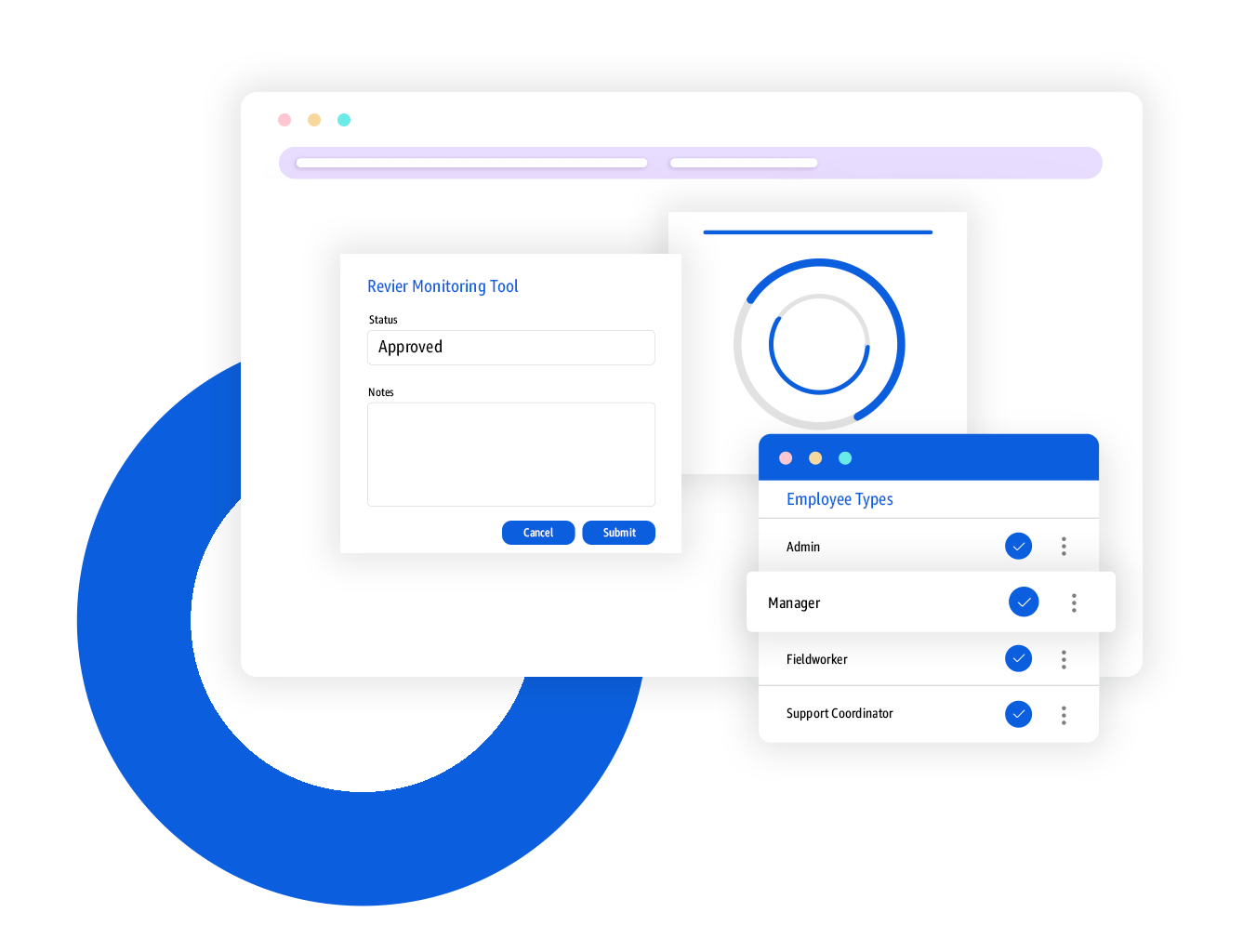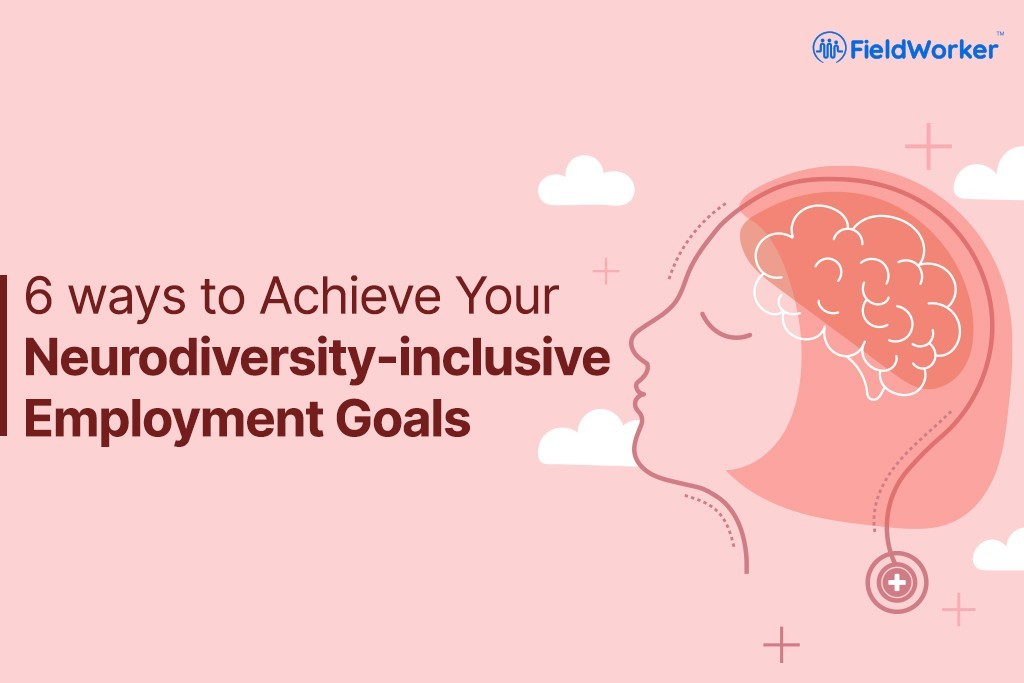Every brain is unique. Every individual’s capacity and uniqueness of thinking, learning, and processing information is different. We have wiring in the brain that differs naturally, resulting in several neurological variances. The term “neurodiversity” refers to the idea that there are variations in how people’s brains function and that these variations are normal and shouldn’t be stigmatized or excluded. Neurodivergent people are those who have neurological differences such as autism, ADHD, dyslexia, dyspraxia, and others.
However, we discreetly communicate to our employees that we aren’t considerate or sensitive to their differences when we fail to recognize neurodiversity as a crucial component of diversity, equity, inclusion, and belonging. We reflect that people with cognitive disabilities are flawed or weak in some way, even unintentionally.
We lose more than just an employee’s bright personality when they aren’t free to be themselves at work. We stop having the innovativeness, resourcefulness that safety demands and critical thinking abilities.
Due to a variety of factors, including non-inclusive hiring and retention practices, a lack of employer education and training, the absence of support ecosystems at work, and skill differences or needs that frequently conflict with standard business operations, neurodivergent adults who are eager to work professionally are frequently excluded from the workforce or forced into lower-skill jobs.
What do the statistics say?
Adults who are neurodivergent experience unemployment rates of at least 30–40%, which is three times higher than that of persons with disabilities and eight times higher than those without disabilities. Few sites track unemployment details among a broad spectrum of neurodiversity, including autism, ADHD, dyspraxia, dyscalculia, dysgraphia, and many other neurological impairments; thus, exact numbers are unknown.
According to consulting and auditing firm Deloitte, 10% and 20% of the world’s population are deemed neurodivergent.
Unfortunately, the research necessary to create these figures is frequently lacking. Even with the most conservative projections, millions of neurodiverse persons cannot secure meaningful employment that enables them to lead-free, happy lives.
What are some societal stigmatizations for Neurodiversity?
There’s a social stigma associated with neurodiverse people that’s incorrect and needs to be worked upon; Some of them are stated below;
– It’s believed that people with Asperger’s syndrome won’t be sociable and that people with autism cannot read.
– Their seniors worry that they’ll need excessive assistance, won’t fit into the company’s culture, or lack the required skill sets for the position.
– Neurodiverse individuals frequently experience anxiety when coming to terms with their identities. They are hesitant to disclose because their illness or diagnosis may change how others perceive them.
– Many misconceptions concerning neurodiversity serve as the primary source of this dread. Additionally, many neurodiverse individuals don’t exhibit the traits typically associated with successful employees, such as effective communication, teamwork, emotional intelligence, persuasiveness, salesperson-like personalities, networking skills, and the capacity to follow the rules without the need for special accommodations. These standards effectively eliminate neurodiverse individuals.
Why having a neurodiverse workforce is essential?
According to Deloitte, most of the people with autism (85%) are unemployed, compared to 4.2% of the general population, despite autism’s high prevalence in the US.
Despite the societal stigma discussed above, numerous businesses, including Deloitte, Microsoft, SAP, JPMorgan Chase, and EY, have established neurodiversity hiring initiatives in response to their recognition of the skills that neurodiverse individuals may offer to the workplace.
In addition to their attention to detail, pattern identification, inferential reasoning, arithmetic and coding skills, timeliness, and ability to propose original, creative solutions, neurodiverse personnel employed through initiatives like these are praised and recognized for their many other qualities.
What things can you consider to have a more inclusive neurodiverse workplace?
According to Deloitte, businesses need to develop a culture where both neurodivergent and neurotypical individuals may flourish. This entails refraining from biases and treating employees uniformly. It’s also important to remember that one size fits all will not work here. So let us look at a few things that can work:
1. Starting with the hiring process. According to the Harvard Business Review article “Neurodiversity as a Competitive Advantage,” some neurodivergent diseases “may grant unique skills in pattern recognition, memory, or mathematics.” Neurodiverse applicants often perform better than their neurotypical counterparts when given access to a more inclusive hiring and onboarding process.
2. Recruiters might change interview processes to make candidates feel less anxious. Some of the things can be:
-Distraction-free work environments for applicants with ADHD or autism spectrum disorders
– Choice to work from the comfort of home or remotely
– Preparing worksheets, references, and interview questions
– Neurodiversity coaching
3. Other essential strategies for developing an open, supportive culture that can increase productivity and loyalty include offering mentors and including flexibility, particularly around hybrid working.
Neurodivergent workers may develop into mentors or coaches as they gain expertise in their positions and pass that knowledge to other neurodivergent professionals within the business. Professionals in this network may eventually feel like they belong to it and be able to benefit from one another’s experiences for their own and the organization’s good.
4. Flexible work arrangements benefit your whole workforce, not simply members of your neurodivergent team. The ability to set their schedules and conduct business from wherever they like benefits working parents, caregivers, people with impairments, and everyone else.
5. Many people need reasonable accommodations because they are disabled, neurodivergent, or suffer from other conditions. So creating policies that promote the health of any employee benefits all workers. Supporting neurodiversity at work makes it simpler for everyone to request assistance.
6. Suggestions and feedback: If you’re unsure, start by asking your employees what tasks they must complete. There’s a good chance that some of your current employees are neurodivergent. However, it’s also true that individuals in your company think and operate differently from one another. Here, a brief comment or recommendation form might be really helpful.
You can identify areas where your company may unintentionally be making it challenging for neurodiverse talent to work there by taking a close look.
Before we go:
Organizations need to learn to encourage, empower, and tap into the enormous talent existing in a neurodiverse workforce because talent shortages are observed in every area. It would be beneficial for employers to focus on the benefits of neurodiversity in the workplace. Increased diversity in abilities, modes of thought, and problem-solving methods can give organizations a competitive edge if they go above and beyond to find, keep, and develop neurodivergent employees.

